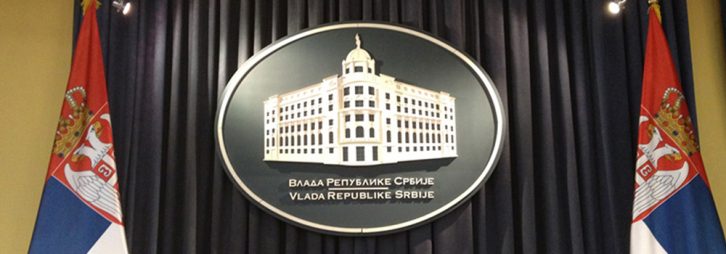Na skali od 1 do 5, ispitanici su ocenjivali rad devet političara i Vlade Srbije. Najvišu prosečnu ocenu dobio je predsednik Aleksandar Vučić (3,90), a najnižu ministarka pravde Nela Kuburović (2,98). Rad Vlade Srbije ocenjen je prosečnom ocenom 3.43.
Institut za evropske poslove u saradnji sa Ninamedia istraživačkom kućom sproveo je u periodu od 21. do 24. marta istraživanje javnog mnjenja o radu Vlade i Predsednika Srbije. Istraživanje je rađeno na reprezentativnom uzorku od 1201 ispitanika. Ispitanici su davali ocene Premijerki Srbije, Predsedniku Srbije, i Vladi Republike Srbije. Istraživanje je obuhvatilo i šest ministara, ministra spoljnih poslova, ministra unutrašnjih poslova, ministarku građevinarstva, saobraćaja i infrastrukture, ministarku za evropske integracije, ministra odbrane i ministarku pravde. Ispitanici su davali ocene od 1 do 5, gde 5 predstavlja najvišu ocenu, a 1 najnižu.
Najvišu prosečnu ocenu dobio je Predsednik Srbije Aleksandar Vučić, 3,90 zatim sledi ministar spoljnih poslova Ivica Dačić sa ocenom 3,61, na trećem mestu je ministar unutrašnjih poslova Nebojša Stefanović sa ocenom 3,52. Sledi premijerka Ana Brnabić sa ocenom 3,49 i Vlada Srbije sa 3,43. Ministarke građevinarstva, saobraćaja i infrastrukture i za evropske integracije Zorana Mihajlović i Jadranka Joksimović su izjednačene sa ocenama 3,24, sledi ministar odbrane Aleksandar Vulin sa 3,07, dok je najnižu ocenu dobila ministarka pravde Nela Kuburović 2,98.
Najstariji građani iz populacije 60+ godina u značajnoj meri daju više ocene radu Predsednika, Premijerke i ministrima u odnosu na mlađe građane. Građani sa osnovnim obrazovanjem takođe daju više ocene političarima u odnosu na one sa višim i visokim obrazovanjem. Kada se o regionima radi, političare su najlošije ocenili Beograđani, a najbolje građani istočne i južne Srbije.
Političare su najslabije ocenili najmlađi građani iz grupacije 18 – 29 godina, i to ocenom 2,90. Najbolje ocene dobili su od građana starijih od 60 godina, 3,89.
Predsednik Vučić najbolje je ocenjen među najstarijom populacijom iz grupe 60+ godina, sa ocenom, 4,47. To je najviša ocena koju je neki političar dobio u ovom istraživanju. Najnižu ocenu Predsedniku Srbije dali su najmlađi građani, iz grupe 18 – 29 godina i to 3,40. Predsedniku su višu ocenu dale i žene, 4,07 kao i populacija sa osnovnom školom, 4,25. Sa druge strane, građani sa višom školom ili fakultetom Predsednika su ocenili ocenom ispod proseka, 3,22.
Kada se radi o procentima građana koji su dali najviše ocene političarima, gotovo polovina građana (48,8%) dalo je maksimalnu ocenu 5 Predsedniku Srbije. Tek svaki deseti dao je ocenu 5 ministarki pravde. Ministar odbrane Aleksandar Vulin dobio je ocenu 1 od svakog petog građanina, što je najviši procenat jedinica, a najmanje jedinica dobio je ministar spoljnih poslova Ivica Dačić, 8,6%.
Beograd, 25. april 2018.



